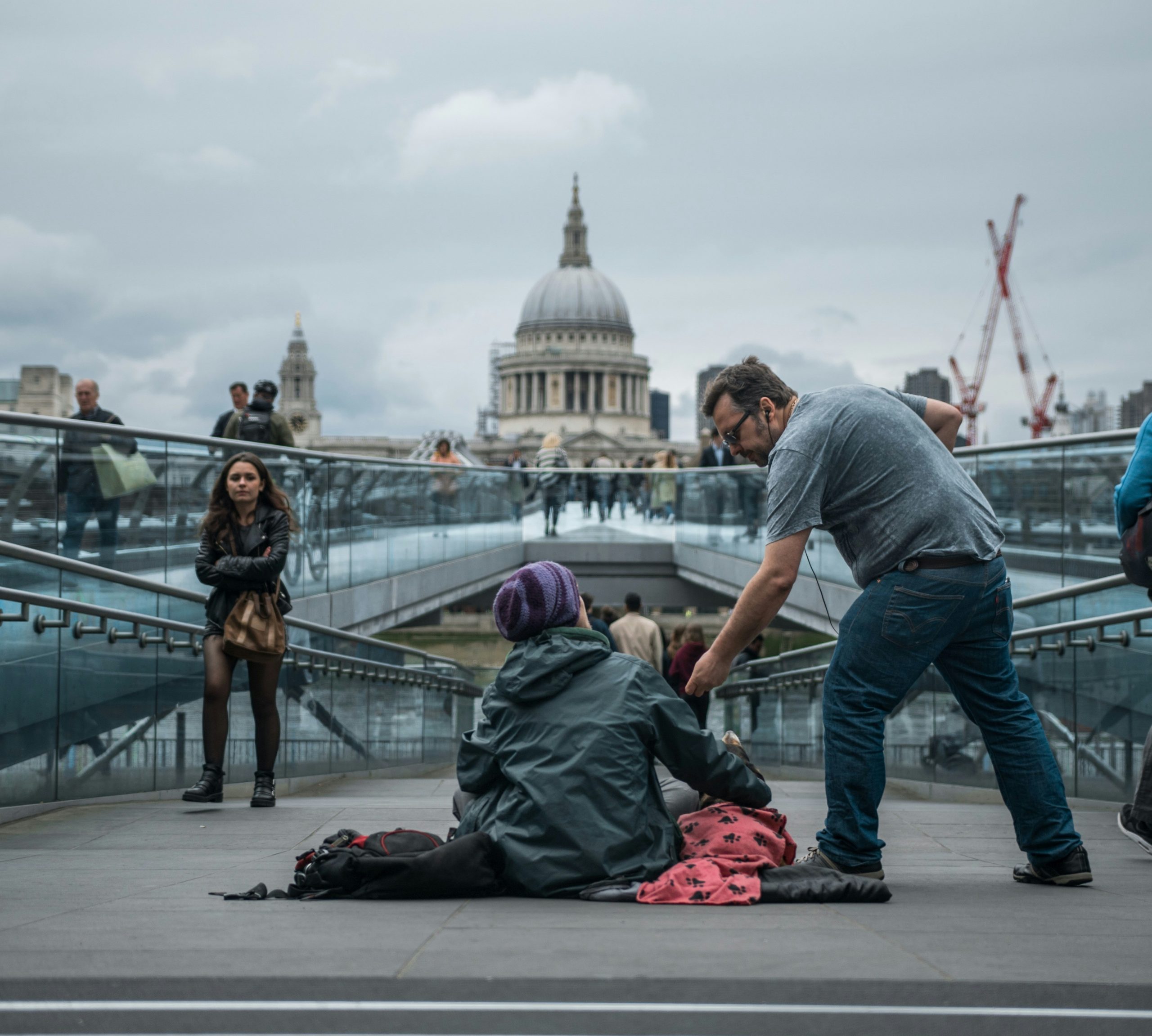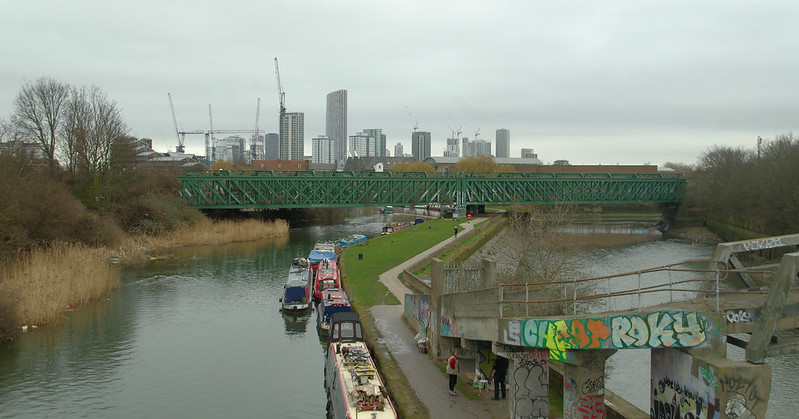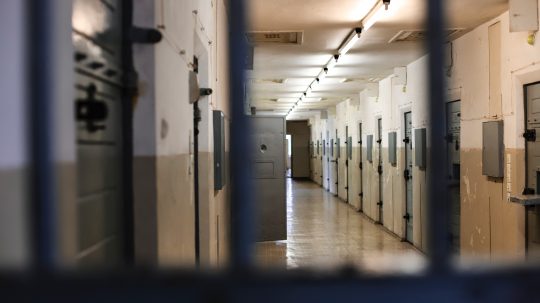Please note: some of the names in this article may have been changed.
The government has recently released two reports, Flow of rough sleeping research report and Homelessness and Rough Sleeping Systems-wide evaluation feasibility reports, which set out its proposals for eradicating homelessness by 2025. It has also allocated £2bn to achieve this via the cross-government strategy ‘Ending rough sleeping for good’. But is it possible to eradicate homelessness by next year?
The homelessness and rough sleeping (HRS) system has created a two-area structure (policymaking at central government and service delivery at a local level) to provide commissioned and non-commissioned support and delivery of services to individuals with lived experience.
Those services include housing, outreach, food, training and advice, and both areas focus on groups who have experienced rough sleeping, as well as the charities and services that try to help them.
However, in the report the government acknowledged that help cannot be given to all, for example, to asylum seekers and those who have left prison, due to housing spots not being guaranteed and delays in housing responses from councils and charities. Instead, advice is provided on where to find further assistance. The first report follows the journey maps of many individuals from the case study areas, such as Brighton & Hove, Birmingham and the London boroughs of Southwark, Westminster and Camden.
Althea, an asylum seeker, lived in accommodation in Leeds until her asylum claim was refused, highlighted a lack of support. She moved to London, assuming she would receive more help in the capital, but after calling multiple charities, she was met only with refusals to house her or offer advice. Althea is currently awaiting a housing response from Southwark Council.
Is the Target of 2025 Achievable?
Government reports acknowledge that many asylum claims are refused by the Home Office, and there is also a hesitance on the part of those from whom help is sought, in terms of what support to offer. The combined result is not only more people sleeping rough, but also a reluctance on their part to accept help when it is offered, for fear of being failed yet again.
This was demonstrated by Richard’s journey, whereby he left his poor-condition accommodation in Birmingham and looked for help in finding somewhere better. However, such help was not forthcoming, and so when teams did later reach out, he was reluctant to engage with them. The same report includes the point of view of a Camden Service Commissioner, in terms of the loss of hope that many face: “You lost your job, you can no longer afford your rent … those who end up rough sleeping for the first time, don’t have those networks.” Many participants noted that “the process for accessing housing support could be lengthy and complex, and that this was a factor leading them to sleep rough”.
The situation of homeless individuals across the country underwent significant change during Covid-19, which is not noted in either report. On 26 March 2020 the UK government emptied shelters and put those facing rough sleeping in hostels and hotels, for social distancing reasons. Despite the measures being beneficial to the health of those being moved at the time, and having prevented many deaths, people ultimately had to return to the streets, leading to a rise in the number of rough sleepers.
This begs the question: Could the government have continued to rehome those sleeping on the streets? It is important to investigate the reasoning behind the government’s ‘supportive’ plan to stop homelessness, and such questions are being raised by those within the charity sector and by campaigners, following the suggestion by former home secretary Suella Braverman that those sleeping rough are staying on the streets as part of a “lifestyle choice”.
The British people are compassionate. We will always support those who are genuinely homeless. But we cannot allow our streets to be taken over by rows of tents occupied by people, many of them from abroad, living on the streets as a lifestyle choice. 1/4 https://t.co/fT1Ou5kD5Q
— Suella Braverman MP (@SuellaBraverman) November 4, 2023
In November 2023, Braverman took to X, formerly Twitter, stating: “The British people are compassionate. We will always support those who are genuinely homeless. But we cannot allow our streets to be taken over by rows of tents occupied by people, many of them from abroad, living on the streets as a lifestyle choice.”
The statement was made following scrutiny of proposed plans to introduce new civil offences designed to deter charities from giving tents to homeless people if their use could cause a nuisance.
In response to Braverman’s statement, Shelter stated: “The government made an election promise to end rough sleeping by December 2024. Instead, it’s risen sharply. Government statistics show that last autumn, over 3,000 people were sleeping rough on the streets of England – a rise of 26% in just one year. Since 2010, rough sleeping is up 74%.”
Matt Downie, Chief Executive of Crisis, also stated: “Sleeping on the streets is not a lifestyle choice. We don’t have nearly enough affordable homes, rents are soaring and this is leaving people destitute and forced to sleep rough. In the last 12 months, in London, there’s been a 29% increase in people experiencing their first night on the streets.
Downie continued: “This is a consequence of poverty – and poverty in this country has been exacerbated by policy choices. It’s also down to stretched mental health services, as many people sleeping rough will have experienced trauma, often in early childhood, and are struggling to access the support they need.
According to Hope Into Action, a charity that supports churches in housing the homeless, Westminster City Council is currently proposing bylaws that would ban rough sleeping and prevent groups from distributing food to people in need. The charity details in particular the policy of stopping people from sleeping rough as a way of limiting immigration.
In an attempt – and similar to the government’s plan to highlight, transform and improve the perception of homelessness, Prince William has launched the Homewards initiative, with the aim of cutting homelessness over the next five years in the UK.
The Prince’s Trust believes it is possible to end homelessness, as countries like Finland are working towards. However, this big task involves various people and organisations working together so that it is possible to make homelessness rare, brief and unrepeated.





